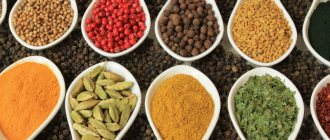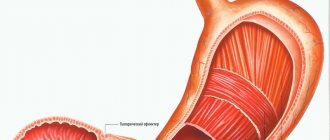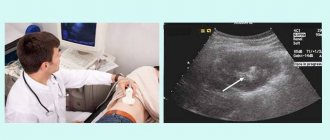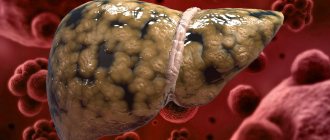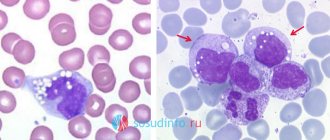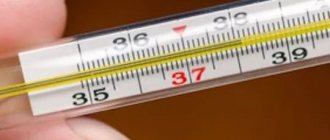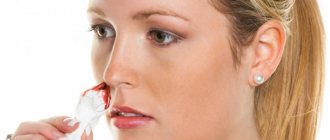Perhaps there is no person who has never encountered such troubles as diarrhea. Diarrhea occurs less frequently in adults than in children, but everyone is familiar with it.
Adults often perceive diarrhea as an annoying minor nuisance. Having swallowed the first anti-diarrheal tablet found in the medicine cabinet, they rush on to their important business.
Diarrhea is not a disease, but a symptom that gives a person a signal: the functioning of the body is impaired. Most often, this disorder is associated with the functioning of the intestines and other organs of the digestive system.
General information and classification
Depending on the duration of symptoms, diarrhea can be:
- acute (<14 days);
- persistent (14-30 days);
- chronic (>30 days).
By origin - infectious and non-infectious. Infectious diarrhea, in turn, can be:
- viral (for example, with rotavirus infection);
- bacterial (salmonellosis);
- caused by protozoa (amebic dysentery).
According to the mechanism of occurrence:
- secretory (when more fluid is released into the intestinal lumen than is absorbed, and due to stretching, intestinal motility increases);
- osmolar (when substances appear in the intestinal lumen that “attract” water and irritate the intestinal wall - undigested carbohydrates, bile acids, undigested fats);
- exudative (an inflammatory secretion is released into the intestinal lumen - exudate);
- dyskinetic (intestinal motility is impaired due to altered nervous or hormonal regulation).
Strictly speaking, diarrhea is not a disease, but a symptom that can appear in various diseases, both infectious and not at all related to the gastrointestinal tract. For example, one of the causes of chronic diarrhea may be diabetes mellitus, or more precisely, damage to the intestinal nerves caused by increased levels of glucose in the blood. Therefore, you should not diagnose and treat diarrhea on your own - your doctor will determine the cause faster and more accurately.
Diarrhea can be caused by both intestinal diseases and problems in other organs
When to see a doctor
Stomach discomfort is uncomfortable. It is possible to cope with the symptom on your own, but it is important to monitor your well-being. List of warning signs when you need to immediately seek medical help:
- Severe diarrhea lasts more than two days;
- The temperature rises and a fever begins;
- On the first day, signs of dehydration are observed;
- Periodic nausea is felt;
- The patient notes acute pain in the abdomen (this is due to disruption of the digestive process);
- Loose stools are accompanied by chills, fever or severe cramps in the stomach;
- A rash and jaundice (yellowing of the skin and eyelids) appear;
- There is a strong weakening of the body, the state of health sharply worsens;
- Sudden diarrhea accompanied by vomiting;
- Lethargy, drowsiness;
- Feels dry in the mouth;
- The number of urinations decreases;
- Presence of pus, mucus or blood in the stool.
If you experience accompanying symptoms with diarrhea that make you feel worse, call a doctor. Uncontrolled watery stools can cause serious harm to the body and cause complications. The symptom is considered a companion to a serious disease. It is important to find out exactly the cause and start treatment correctly.
Causes of diarrhea
The most common cause of diarrhea is infection. The infectious agent can enter the body through water or food contaminated with feces. This group also includes diarrhea caused by parasitic infestation (giardiasis, enterobiasis, ascariasis).
Of the non-infectious causes of diarrhea, indigestion ranks first. This may be a congenital intolerance to certain foods, among which the most famous are lactose and gluten intolerance. Or indigestion occurs due to a chronic disease of the gastrointestinal tract. For example, pancreatic enzyme deficiency causes undigested fats to irritate the intestinal wall, which in turn causes diarrhea.
Diarrhea can also be caused by chronic non-infectious intestinal pathology, for example, irritable bowel syndrome, ulcerative colitis, Crohn's disease. Finally, it can be caused by diseases unrelated to the gastrointestinal tract. Diabetic enteropathy has already been mentioned above, in which due to high levels of glucose in the blood, the normal innervation (nervous regulation) of the intestines is disrupted. This group includes diarrhea due to hyperthyroidism, hypoparathyroidism, chronic cardiovascular or renal failure, and vasculitis. Diarrhea not associated with gastrointestinal pathologies also includes the “bear disease” known to students.
Diarrhea caused by taking medications should be included in a separate group. Most often, it is caused by uncontrolled use of laxatives in order to lose weight. But digitalis preparations, cytostatics, and immunosuppressants can also provoke excessive intestinal activity.
TOP 10 folk remedies for diarrhea in adults
If diarrhea begins, treatment at home in adults is permissible only with a mild form of the disorder. The presence of accompanying symptoms (fever, headache, severe weakness) is a reason to visit a doctor.
On average, it is recommended to use folk remedies for diarrhea in adults at home for no more than 1–2 days. If digestion does not normalize during this period, you should resort to drug therapy.
Boiled carrots
Carrots are useful for normalizing digestion if the disorder is caused by an exacerbation of chronic gastritis, pancreatitis or mild food poisoning. Boiled carrots contain a high concentration of fiber, vitamins and biologically active substances.
To eliminate diarrhea, you need to boil one medium-sized root vegetable in 100 ml of salted water. Cooking should take no more than 3–5 minutes. After this, you need to drain the broth, strain it, and take it warm for 2-3 days. Treatment of diarrhea should be continued even after the diarrhea has stopped.
The root vegetable itself can be ground in a blender to a puree. It should be consumed daily until complete recovery. Such nutrition will speed up the process of restoring the functioning of the digestive tract.
Rice and rice water
Folk remedies for the treatment of diarrhea with complex effects. This cereal is considered a natural sorbent: it absorbs bacteria and the toxins they produce like a sponge. Rice also has strengthening and enveloping properties. It soothes irritated areas of the intestinal mucosa, which accelerates the normalization of digestion.
For diarrhea, it is useful to eat lean rice porridge, cooked in water without oil and sugar. Round-grain rice is more effective - its enveloping properties are stronger than other varieties.
Rice water works in a similar way. You need to boil the cereal until half cooked, drain the liquid and strain it. The resulting drink must be taken every 2–4 hours, 100 ml.
Lemon
For diarrhea, it is used in complex treatment therapy. Lemon has antiemetic, tonic and rehydration properties. It helps treat dehydration, one of the most dangerous consequences of diarrhea.
Lemon is used in several ways for diarrhea and vomiting:
- add a slice to a cup of green or black tea;
- prepared from juice and warm water (fresh juice from one fruit per liter of boiled water);
- inhale essential oil to eliminate the urge to vomit;
- add 1-2 drops of juice to cleansing enemas.
- This fruit contains high doses of vitamin C, which strengthens the immune system and speeds up recovery.
Bird cherry
The benefits of this plant for diarrhea are explained by its astringent, antibacterial and antispasmodic properties. Bird cherry provokes consolidation of stool, eliminates the cause of its disorder, and reduces the intensity of abdominal pain.
To eliminate diarrhea, you can use the berries, bark and inflorescences of the plant.
To prepare a healing decoction you will need a tablespoon of bird cherry. It needs to be poured with a glass of boiling water and boiled for 20 minutes in a water bath. After cooling to room temperature, drink the drink half a glass 2-3 times a day. It is also useful to include bird cherry berries in your daily diet.
Strong tea
A safe and effective way to get rid of stool disorder. Strong tea has astringent properties due to the high concentration of tannins and tannins. It is not recommended for hypertension or any other cardiovascular diseases.
Prepare your favorite tea, approximately doubling the concentration compared to your usual recipe, and drink. You can simply chew dry tea leaves (half a teaspoon) and drink 100 ml of warm water.
Black pepper
The popular spice contains a high concentration of antiseptic, antimicrobial and analgesic components. It helps with diarrhea caused by the activity of pathogenic microorganisms. The traditional method of treatment will be effective for mild forms of dysentery, salmonellosis and other intestinal infections. An important advantage of the method is that it allows you to cure diarrhea quickly and cheaply.
It is enough for an adult to swallow 10-15 peas and wash them down with water. There is no need to chew the pepper. After 5–6 hours, the dose can be repeated.
Potato starch
Starch is a safe and effective treatment for diarrhea. It has a beneficial effect on the functioning of the gastrointestinal tract, and acts in several directions at once:
- eliminates inflammation of the intestinal mucosa;
- accelerates the healing of damaged tissues;
- reduces the intensity of peristalsis;
- envelops the walls of the digestive tract;
- binds liquid feces.
To treat diarrhea, you need to pour a teaspoon of starch into 100 ml of cold boiled water. After mixing, drink the resulting solution at once. The product has no contraindications or side effects. In rare cases, dyspepsia is possible - bloating, flatulence, heartburn.
Pomegranate peels
Pomegranate peel has a high content of polyphenols - biologically active compounds with antimicrobial properties. The product helps in the treatment of diarrhea caused by poisoning, intestinal infections and food allergies.
To prepare the decoction, you need to chop 2 tablespoons of pomegranate peel, add a glass of water, and simmer for half an hour. Take 50 ml 20 minutes before meals.
Vodka with salt
This is a popular and fast-acting treatment for diarrhea. Its effectiveness in treatment is explained by the fact that alcohol retains fluid in the body, preventing dehydration, and kills pathogenic bacteria. But it has a lot of contraindications, including pregnancy, arterial hypertension, the presence of chronic diseases of the gastrointestinal tract, and old age.
To prepare the medicine, you need to mix 80 ml of vodka with a third teaspoon of salt. The drink must be drunk in one gulp, without snacking. After this treatment of diarrhea, sleep is recommended.
Garlic
The antimicrobial properties of garlic are widely used in the treatment of diarrhea in folk medicine. They are also useful in the treatment of chronic stool disorders. For the treatment of severe diarrhea caused by acute intestinal infection or poisoning, such a remedy will not be enough.
You need to eat a clove of garlic every day on an empty stomach, an hour before breakfast. It should be swallowed without chewing to avoid bad breath. You can drink garlic with a glass of water. Duration of treatment – 10 days.
Symptoms of diarrhea
The main symptoms of diarrhea are frequent bowel movements and loose stools. If defecation occurs more than three times a day, but the stool is formed, there is no talk of diarrhea.
Often, defecation is accompanied by urgency (sudden uncontrollable desire to visit the toilet), abdominal pain, and rumbling. With diarrhea caused by infection, the picture is complemented by vomiting, high fever, signs of general intoxication, and sometimes blood or mucus in the stool.
Infection is the most common cause of diarrhea
Diarrhea, which is caused by indigestion, is usually accompanied by signs of maladsorption - impaired absorption of vital substances. The patient loses weight and develops anemia. To summarize, we can say that the symptoms accompanying diarrhea primarily depend on the disease that caused this syndrome.
Cause for concern: alarming symptoms
Diarrhea, being a symptom in itself, is often accompanied by other manifestations: It is important to notice and evaluate them in a timely manner in order to determine further actions.
- Abdominal pain. It appears with almost all types of diarrhea, only the nature and intensity of pain differs.
- Temperature increase. Diarrhea and a temperature of 38 and above in an adult are most often the body’s protective reaction to the invasion of foreign microorganisms.
- Nausea and vomiting. Toxins enter the bloodstream and spread throughout tissues and organs. The vomiting center in the brain reacts to a negative situation. This is another defense mechanism of the human body.
- Change in stool color. A symptom that requires close attention: based on it, you can with a high degree of probability understand the cause of the disease. Yellow diarrhea indicates excessive contraction of the intestines, and in the absence of other alarming manifestations does not pose a serious danger. Green diarrhea indicates an infectious cause of the disease. It often looks like swamp mud and is mixed with mucus. Black diarrhea is a signal of existing gastric or intestinal bleeding. Light, almost white feces are a sign of insufficient bile processing of incoming food.
- The appearance of pathological impurities. Bloody diarrhea indicates bleeding into the intestinal cavity. This phenomenon is also typical for poisoning with chemicals and poisons. Diarrhea with mucus that has a greenish or bloody tint is a sign of severe development of the disease. Transparent mucus indicates a relatively mild course.
By assessing the color of diarrhea, consistency and other accompanying signs, we can draw a conclusion about the reasons for the development of the disease.
Diagnosis of diarrhea
Diagnosing diarrhea as a symptom is not difficult - complaints about frequent loose stools are enough. To identify the cause of its occurrence, the doctor collects an anamnesis (contact with patients with infectious diarrhea, an outbreak of intestinal infection in a children's group, hospital, hotel, the presence of concomitant diseases).
During the examination, the doctor pays attention to pain, bloating, and asymmetry.
Microscopic examination of feces allows you to determine the nature of the digestive disorder. The detection of leukocytes in the stool may indicate inflammation, and occult blood may indicate ulcerative colitis, diverticulitis, or Crohn's disease. Testing for worm eggs, stool culture, and enzyme immunoassay help identify the causative agent of diarrhea.
Endoscopic methods - fibrogastroduodenoscopy, irrigoscopy - allow us to assess the condition of the gastrointestinal mucosa. Finally, in some cases (such as neuroendocrine tumors), computed tomography, magnetic resonance imaging, or positron emission tomography can help determine the cause.
Recognize the disease: diagnosis of diarrhea in an adult
Diarrhea and vomiting themselves are symptoms indicating the development of various pathologies, so making a correct diagnosis is very important. Further treatment depends on this.
- Visual examination and questioning of the patient, palpation of the abdomen.
- Laboratory diagnostic methods: stool analysis for bacteriological carriage, general and biochemical blood tests, coprogram.
- Instrumental examination: ultrasound of the abdominal cavity, endoscopic examination (performed if the presence of neoplasms and damage to intestinal tissue is suspected), radiography of the esophagus and stomach, proctological examination.
After carrying out all the necessary diagnostic procedures, a diagnosis is established and a decision is made on how to stop diarrhea in an adult in each specific case, taking into account the pathology that contributed to its occurrence.
Treatment of diarrhea
Treatment for diarrhea will depend on the disease that caused it. For infectious diarrhea, antibacterial and antiparasitic agents are prescribed. It is imperative to compensate for dehydration - this is what causes death during an intestinal infection. In addition, for infectious diarrhea, sorbents are prescribed - these drugs absorb toxins released by the infectious agent and dead intestinal cells. After the end of the acute period, drugs are recommended to restore normal microflora: probiotics (live “useful” microbes), prebiotics (substances that promote the proliferation of normal microflora) and synbiotics (drugs that combine probiotics and prebiotics).
For diarrhea caused by digestive problems, enzyme preparations are recommended; for motility disorders, prokinetics (itomed). In the case of chronic inflammatory bowel diseases, anti-inflammatory drugs are prescribed, sometimes cytostatics and immunosuppressants.
For chronic diarrhea caused by inflammatory diseases, as well as for irritable bowel syndrome, the use of gastroprotectors (rebamipide) is recommended to accelerate the recovery of the intestinal mucosa.
If the disease is caused by pathology of other organs and systems, drugs are prescribed to treat the underlying disease and this therapy is supplemented with drugs to normalize intestinal motility.
Diet is very important in the treatment of diarrhea. The diet directly depends on the cause of the syndrome. Most often, diet No. 4 according to Pevzner is recommended - it is indicated for infectious intestinal diseases. If diarrhea is caused by pathology of the pancreas, Table No. 5a is prescribed, for diseases of the gallbladder - Table No. 5. In cases where diarrhea is caused by intolerance to a particular product, it is often enough to exclude only this product from the diet (lactose-free, gluten-free diet).
Types and clinical signs of diarrhea
According to the nature of the course, stool liquefaction can be acute and chronic. Types of diarrhea:
- infectious;
- nutritional;
- motor;
- medicinal;
- neurogenic;
- exudative.
Each type has characteristic features.
The diagnosis of “chronic diarrhea” is made if stool disorder persists for more than 3 weeks.
Infectious diarrhea
The intensity of bowel movements depends on the causative agent of the intestinal disorder. Uncontrollable urges are accompanied by copious watery feces interspersed with green mucus. The infection is easily transmitted through contact with a sick person. Before the urge to defecate, there is a feeling of general weakness and sudden malaise. The tongue is covered with a white or yellow coating.
Nutritional diarrhea
This type of bowel disorder is associated with food poisoning. A mild degree of intoxication is manifested by yellow, mushy feces. In this case, some of the necessary elements are absorbed into the bloodstream. The frequency of stools usually does not exceed 5 times a day.
Severe poisoning is accompanied by severe intoxication: significant loss of fluid, weakness, elevated body temperature, pain in the stomach and intestines. Without a stool test, it is difficult to determine the exact cause of diarrhea, since nutritional diarrhea has similar symptoms to the disorder caused by infection.
Motor diarrhea
Characterized by impaired motility of the gastrointestinal tract. Stool disorder occurs due to the regulatory influence of hormones produced by the mucous membrane of the stomach and small intestine. Motor diarrhea may be associated with decreased tone of the intestinal wall. This type of disorder occurs when protein metabolism is disrupted and small blood vessels are damaged.
Drug-induced diarrhea
A change in osmolarity (concentration of dissolved substances) in the intestines occurs when taking saline laxatives. Some medications contain large amounts of disaccharides, peptones and other components that the small intestine does not have enough enzymes to break down. As a result, the stool becomes watery and bulky.
Diarrhea can be a side effect of some medications. After discontinuation of the drugs, the stool is restored.
After taking antibiotics, the balance of microflora in the intestines is disrupted. The active components kill not only pathogenic microbes, but also beneficial bacteria. Diarrhea is a common occurrence after treatment with antibacterial drugs. The stool is restored within 5–7 days. During this period, the balance of intestinal microflora returns to normal.
Neurogenic diarrhea
A disorder of nervous regulation caused by strong emotions and experiences leads to impaired motility of the gastrointestinal tract. Frequent urges to defecate occur, as a rule, against a background of stress and anxiety. This disorder is called irritable bowel syndrome. Feces have a semi-formed consistency and come out in small portions.
Exudative form
Diarrhea is caused by damage and subsequent ulceration of the walls of the colon. Exudate is a liquid that is released from small blood vessels during inflammation. Ulceration of the intestinal mucosa occurs against the background of ulcerative colitis, Crohn's disease, parasitic infections, and tuberculosis.
Exudative diarrhea is characterized by the release of blood, pus, mucus particles, and protein fluid into the lumen. The stool is liquid, the volume of feces does not exceed the daily norm.
Crohn's disease is an inflammatory disease of the digestive system with the formation of granulomas (nodules) on the mucous membranes. Most often, the pathology affects the tissues of the colon. Diarrhea in Crohn's disease is often accompanied by bloating and severe pain, simulating acute appendicitis.
Acute bowel disorder
General signs of diarrhea characteristic of acute course:
- pain – localized in the lower abdomen, on the left side;
- heat;
- nausea, vomiting;
- weakness;
- decreased blood pressure;
- painful urge to defecate;
- fecal incontinence caused by increased gastrointestinal motility;
- flatulence - increased formation of gases occurs due to fermentation, lack of digestive enzymes.
Bloody diarrhea
The presence of blood in liquid stool in an adult indicates a severe infection accompanied by active bleeding. The feces have a dark cherry color and a mushy consistency. Active bleeding is also observed during the disintegration of a cancerous tumor.
Scarlet blood in the stool is a sign of hemorrhoids, anal fissures, and diverticulitis. It is present in the form of clots. Since the bleeding site is located close to the anus, the blood does not have time to clot and its color does not change.
Symptoms of diarrhea caused by gastric bleeding: loose, tarry, black stools. These signs indicate an exacerbation of ulcerative-erosive gastritis.
Forecast and prevention of diarrhea
For infectious diarrhea, the prognosis depends on the severity of the disease and the timeliness of medical care: in countries with undeveloped medicine, deaths are not uncommon. But with timely replenishment of the loss of water and electrolytes, as a rule, complete recovery occurs.
To prevent infectious diarrhea, you need to follow the rules of hygiene, wash your hands, fruits and vegetables, and drink only boiled or filtered water. When traveling through the countries of Asia and Africa, it is better to drink only bottled water, wash vegetables and fruits with soap and not buy drinks with ice - it is usually made from unboiled water, which may contain pathogens of intestinal infections.
[1]World Health Organization. Treatment of diarrhea. A textbook for doctors and other categories of senior health workers. 2006
Why is it important to know the types of diarrhea?
It would seem that diarrhea is a frequent urge to defecate, which can be gotten rid of simply by changing the rhythm of the intestines with one or two medications. But this is only apparent ease. The process of stool liquefaction depends on many factors and disturbances in the gastrointestinal tract, and it is extremely necessary to find out them before starting treatment. Only after a thorough analysis of the situation and clarification of the type of diarrhea present can one understand how to carry out treatment. And the variety of ways to solve the problem is simply enormous.
Causes of abdominal pain due to diarrhea?
Pain during an attack of diarrhea is a characteristic phenomenon. Most often it manifests itself in food and microbial poisoning. As a result, pain always increases motility in the intestines.
Painful sensations can be paroxysmal in nature, they can intensify and subside until they stop completely. During a painful attack, a signal to defecate occurs, after which severe diarrhea occurs.
The appearance of loose stool in an adult for a long time can be due to many reasons.
In order to stop the disease, it is necessary to determine its causes and why this symptom appeared. Only after this will it be possible to stop the influence of factors causing diarrhea.
Treatment of loose stools in an adult?
Typically, activated charcoal is taken to get rid of loose stools. Activated carbon has the property of removing fluid and absorbing toxins and other harmful substances formed in the body after diarrhea.
Since loose stools already remove fluid from the body and dehydration may occur, activated charcoal can complicate the situation. Treatment can be long-term.
If you have diarrhea after poisoning, it is imperative to rinse your stomach. To do this, you need to boil water and add ordinary potassium permanganate to it.
The prepared solution should be light pink in color; you need to drink about 3 liters of water.
If you have celiac disease, you must exclude all foods containing gluten and follow a diet. A long therapy process is also followed.
This disease must be treated for many years. Preparations with enzymes are included, as well as medications for dysbiosis and to strengthen the body.
If diarrhea was caused after taking antibiotics, it is necessary to treat with the antifungal drug Linex.
To relieve pain, “No-shpa” and “Papaverine” are used (all actions must be coordinated with the attending physician). "Regidron" helps restore the water-salt balance in the body after diarrhea.
When treating diarrhea, there is no need to waste time on self-medication; you should immediately seek advice from a specialist to determine the cause of the disease. Otherwise, treatment may be lengthy.
Medicines for diarrhea
Medicines for diarrhea are taken if folk remedies are powerless. When diarrhea continues for more than three days, it is imperative to visit a doctor to determine the cause of the diarrhea. Before going to the doctor, you can use pharmaceutical products that relieve symptoms.
Medicines for diarrhea have different effects and are selected depending on the cause of the diarrhea.
Loperamide
Used for indigestion or occasional diarrhea. It reduces peristalsis and stops the muscular activity of the intestines. Loperamide does not affect the cause of diarrhea and cannot be used for poisoning.
Enterosgel
Sorbent. Removes toxins from the body and has an enveloping effect. Suitable for diarrhea caused by poisoning or intestinal infection. Used as part of complex treatment.
Causes
Doctors are unable to fully explain why functional indigestion occurs. Medical statistics note an increase in intestinal motor function in patients, which leads to accelerated movement of contents through the internal channels of the intestines. As a result, the number of urges to evacuate increases, and poor absorption of fluid occurs in the lower intestinal tract. According to medical standards, stool should contain no more than 60-70% moisture. In patients suffering from functional diarrhea, the rate increases to 75-90%.
Doctors believe that motility of the digestive tract and frequent urge to go to the toilet, recognized as symptoms of a functional disorder, manifest themselves in two cases:
- 1 case. Disruption of the normal movement of food in the intestines is caused by the psychological and emotional state of the patient (chronic, acute or nervous stress).
- Case 2. Excessive sensitivity of the nerve endings located in the inner walls of the intestines to fecal pressure.
In patients suffering from functional diarrhea, the urge to defecate occurs at the slightest stretch of the wall of the intestinal tract. The patient’s negative psycho-emotional state provokes increased motility of the digestive system, and the intestinal walls become more sensitive to irritation. This is observed in young animals: school-age children and students before exams. In adults it develops before an interview or at a new job. Conflicts with relatives and other situations associated with anxiety and uncertainty are also considered to be the cause. The impetus for the appearance of a functional disorder in the intestines can be any emotional stress, not only bad, but also positive: a wedding, the birth of a child, career growth at work.
The central nervous system is responsible for and controls the functioning of all internal organs and systems of the body. A sharp change in a person’s emotional state leads to the release of adrenaline into the blood, acting as an irritant on the central nervous system. The result: accelerated organ function and disruption of nerve function, including increased movement of the digestive system.
Diarrhea during pregnancy
The causative factors for diarrhea during pregnancy are the same as in adults. The only difference is the severity of the clinical picture, since during this period of a woman’s life any illnesses, infections, or poisonings are much more severe.
Please note: diarrhea during pregnancy can have negative consequences, so it is very important to seek medical help as soon as the first symptoms appear.
In this case, the gestational age and the cause of diarrhea are of paramount importance. Diarrhea during early pregnancy can be the result of toxicosis, which is quite common. It does not pose a danger to the fetus, because the bacteria that provoke it do not leave the intestines. Severe poisoning can become a threat to the fetus if there is severe intoxication of the mother’s body and toxins penetrate through the placenta into the fetus’ body.
Particularly dangerous is poisoning from fungal poisons, which bypass the placental barrier and cause various defects in the development of the embryo. Diarrhea during early pregnancy is dangerous if the frequency of bowel movements becomes more than 5 times in 24 hours. If there is diarrhea and vomiting, this further complicates the situation and requires immediate medical attention. The consequences of severe diarrhea in a pregnant woman can be :
- spontaneous miscarriage;
- decreased maternal blood pressure;
- the addition of renal failure in a pregnant woman;
- formation of congenital anomalies in the fetus.
Please note: after the 30th week, diarrhea is most often caused by a virus or late toxicosis. Complications of this situation can include premature birth and thrombosis, so if you have symptoms of diarrhea, you should see a doctor. Sometimes diarrhea during the period from 38 to 40 weeks of pregnancy is a sign of natural cleansing of the body and imminent labor.
What to do at home for diarrhea
We recommend reading: What can you eat if you have diarrhea? What should you take if you have diarrhea in an adult?
If diarrhea occurs, you should adhere to general treatment instructions that will alleviate the patient’s condition and improve the functioning of the gastrointestinal tract. These include:
- Refusal to eat certain foods (fatty meat, eggs in any form, milk, hot seasonings, soda, cabbage, cucumbers, radishes).
- Moderate physical activity.
- Mandatory hand washing with soap after visiting the toilet.
- Psycho-emotional peace.
- Follow diet table No. 4. With it, the following products are allowed: yesterday's bread, lean boiled meat and fish, porridge (not with milk), pasta, broth, pilaf, soft-boiled egg.
- Wash fruits and vegetables thoroughly before cooking.
- A proven remedy for diarrhea at home is blueberry jelly.
More information about the possible causes of diarrhea in adults and children, preventive measures and methods of treating diarrhea at home - in the video review:
Yulia Viktorova, obstetrician-gynecologist
53, total, today
( 43 votes, average: 4.05 out of 5)
Jaundice in adults: cause, diagnosis and treatment
Enterocolitis: symptoms and treatment
Related Posts
Prevention
The development of functional disorders of the digestive tract can be prevented by observing mental hygiene. This term includes rules and recommendations aimed at preserving and restoring psychological health, including sleep and rest patterns, and nutrition.
If you are prone to neuroses or have a busy lifestyle, it is recommended to regularly visit a psychologist or psychotherapist to cope with the load. Each person must learn to listen to himself in order to understand how to relieve accumulated emotional stress: one person will be helped by a grueling workout in the gym, another by a walk in the park, and a third by shopping. You should not get carried away with harmful methods of relaxation: drinking alcohol, smoking or self-medicating with sedatives.
Nervous diarrhea is rarely caused by an unhealthy diet, but this can aggravate the situation and increase the number of diarrhea with functional diarrhea. You need to eat in small portions, excluding obviously harmful (fast food, canned food) and difficult-to-digest foods. The closer the diet is to healthy, the lower the likelihood of functional disorders due to nervous system.
Universal means
Blue iodine was originally discovered and used in the treatment of infectious diseases such as dysentery. In this form, it has a bactericidal effect and is absolutely safe. To stop diarrhea, you need to dilute 5 tsp. in a glass of water and drink 15-20 minutes after meals for 4-5 days.
Hydrogen peroxide is known for its beneficial properties. It is able to suppress the proliferation of viruses, bacteria and parasites. Traditionally, it is recommended to start with small doses, bringing a single dose to 10 drops in half a glass of warm water. This medicine is taken 3 times a day 40 minutes before meals. The duration of use is at least 3 weeks. After a week's break, treatment can be continued.
Home treatment
Of course, home remedies can quickly stop the problem, both in adults and children - such treatment should be started if you are sure of a slight malaise. If diarrhea is accompanied by fever, vomiting, and dehydration, there is only one way - see a doctor!
There are a lot of reasons for the disease, we won’t describe them (here everyone must analyze the situation themselves, why the trouble happened). The symptoms, I think, are also clear to everyone. We would like to immediately draw your attention to folk methods that help get rid of diarrhea.
Diet
During an acute condition, along with medications, a special diet is the first thing that must be followed. You should drink A LOT!!! water, eating any food in the first hours is not recommended. Do not eat anything heavy, spicy, no fresh fruits and vegetables, or alcohol. Dried bread, cereals, baked apples, lean boiled meat and jelly should be included in the diet.
| Products not recommended for consumption | Products recommended for consumption |
| Fatty, fried, smoked, baked goods, fruits, vegetables. | Porridge: rice, buckwheat, oatmeal. Baked apples, dried fruit compote, crackers (not sweet), biscuits, chicken, rabbit, turkey (boiled), potatoes. |
It is necessary to adhere to a diet not only during an acute manifestation of a “storm”. The diet and consumption of recommended foods should be continued when the condition has stabilized a little. As a rule, the period of this treatment lasts 2-3 weeks.
If diarrhea begins in children, then a gentle diet and plenty of fluids are the first aid. The solution to this problem will be rice water (cook 2 tablespoons of rice in 0.5 liters of water over low heat and let it brew for 20 minutes), give 50 g 4 times a day. Dried pear compote and dried blueberries.
If the diarrhea is like water, then you need to restore the water-salt balance with the help of the drug "Regidron". Dissolve 1 sachet in chilled boiled water and take 50–100 ml every 3–5 minutes.
Follow a diet of baked vegetables, crackers, strong black tea. You should avoid dairy-based products, fresh fruits and heavy foods.
Means that block the problem
Traditional medicine is quite strong in this matter and has effective recipes for normalizing intestinal function during diarrhea. Let's present the most effective ones.
Oak bark
This product is quite effective and works instantly. Oak bark is used either alone or in combination with other herbs, for example, yarrow, horse sorrel, and honeysuckle.
- 2 – 2.5 tbsp. l. pour 1/2 liter of boiling water over the herbs;
- infusion process - at least 40 minutes;
- We take approximately 60 g 3 times a day.
Pomegranate peel
A very effective traditional medicine.
- place several dried (or fresh) pomegranate peels into a glass;
- fill the container with boiling water;
- cover with a lid and wait for the suspension to turn dirty pink;
- Divide the broth into two portions and take it orally.
Congee
A simple and accessible method for quickly getting rid of diarrhea is rice water. It has a large amount of starch - coats the stomach, blocks irritation from gastric juice. Along with this, peristalsis increases, and the process of normal formation of excrement begins.
Rice decoction perfectly blocks flatulence, which often accompanies diarrhea - it stops the fermentation process in the gastrointestinal tract. In addition, this decoction is absolutely harmless even for a child!
The medicinal decoction is prepared as follows:
- soak the rice in cold clean water for 30 minutes;
- pour water into the container, bring to a boil and add 2-3 tsp. rice cereal;
- Stir the solution periodically and leave on the fire for about 50 minutes;
- express the resulting medicinal solution;
- We take: adults – 150 g every three hours;
- children (depending on age) – from 50 – 100 g per day, four times.
An hour after taking this suspension, the patient feels relief, the symptoms are expressed to a much lesser extent. In children, improvement usually occurs much earlier. Therefore, with these signs in a child, rice water is replaced with strong brewed black tea.
Tea
This component can be found in the kitchen of every home! Tea has an astringent effect, so it perfectly “fixes” the problem of loose stools.
It is important to know! Tea in this case means black leaf tea (not bagged) and without any additives and/or flavorings. Otherwise, a quick effect will not be achieved, and you will have to wait a long time for the medicine to take effect!
- Place 2-3 tsp per cup. tea leaves Thus, the desired therapeutic effect is achieved.
- It is enough to drink the drink in the amount of 1 glass.
- Do not add sugar.
Tea brewing “in its raw form” perfectly copes with the symptoms of diarrhea. It needs to be eaten. Just a couple of spoons.
In special cases, black tea is replaced with green tea; this drink is used 4 times a day. The use of sugar is allowed.
What special cases might there be? People suffering from hypertension should not drink black tea. Caffeine contained in tea leaves provokes surges in blood pressure. People prone to irritability and excitability are also not recommended to drink black tea.
Iodine
This medicinal drink can quickly remove diarrhea and replenish the body with minerals. Preparing the composition:
- add 1 tsp to 200 g of water. salt + 5 drops of iodine;
- Stir the solution thoroughly until the ingredients are completely dissolved;
- We drink in several doses.
Another method of using iodine, the so-called "blue iodine":
- 50 g water + 1 tsp. starch (full) - mix;
- put citric acid here (at the tip of a spoon) + 1 tsp. Sahara;
- dilute this suspension: 150 g of water + 1 tsp. iodine (5%);
- We take: children dosed - 1 tsp (daily norm - 500 g); adults - 1 tbsp. l. (daily norm – 700 g).
Peppercorns
Black peppercorns are a popular first aid remedy for diarrhea. It is better to use this product at night. When the body is at rest, peas are absorbed much better. In the morning you can feel obvious relief.
Round pepper is washed down like a tablet, without chewing, with a sufficient amount of liquid. Adults - 10 peas, teenagers half as much - 5 peas.
Contraindications! Kidney diseases, gastrointestinal diseases, peptic ulcers, anemia, allergies, inflammation of the genitourinary system. You should consult your physician before taking this product.
Functional flatulence
Flatulence is usually called an intestinal disorder, which is accompanied by excessive formation of gas in the intestines or a violation of its elimination, which leads to the accumulation of gas and bloating.
Flatulence can accompany some gastrointestinal diseases or occur as an independent functional disorder in a healthy person. In this case, it is most often caused by:
- disturbance of intestinal microflora;
- frequent consumption of foods that increase gas formation;
- lack of digestive enzymes;
- sedentary lifestyle;
- wearing tight clothes.
Symptoms. Flatulence is manifested not only by an increase in the volume of gases released, but also by a feeling of fullness in the abdomen, rumbling and “transfusion” in the area of the large intestine, feelings of discomfort and fullness, heaviness and painful spasms. It is especially worth noting that the severity of symptoms of flatulence depends not so much on the amount of accumulated gases, but on the sensitivity of intestinal receptors and the psycho-emotional state of the sick person.
In some cases, with severe chronic flatulence, a person is bothered by extraintestinal symptoms: shortness of breath, interruptions in heart function, burning behind the sternum, pressing pain in the right hypochondrium, sleep disturbances and general weakness.
Treatment of functional flatulence is based on the following medications:
- Gas formation can be reduced by taking enterosorbents - Smecta , Enterosgel , Polysorb , Polyphepan .
- No-shpa, No-shpa Forte, Spazmol ), Buscopan , mebeverine ( Duspatalin, Sparex, Niaspam ) can facilitate the removal of gas and eliminate discomfort
- For frequent flatulence, medications and dietary supplements are recommended that restore normal intestinal microflora - Bifiform , Bificol , Bifidumbacterin , Lactobacterin , Linex . You can learn more about the drugs in this group and choose the most suitable remedy for you using this article.
- Trimedat , Neobutin can reduce bloating and speed up the elimination of intestinal gases .
- To eliminate the intestinal symptoms of flatulence, you can use the so-called carminatives - simethicone, dimethicone, bromopride.
Treatment
Having identified a disease that has caused the appearance of liquid or semi-liquid feces, the doctor will prescribe drug treatment with antibiotics, anthelmintic drugs, enzymes, hormones, or whatever the circumstances require. But the most important thing and the first thing the doctor will prescribe is diet. The diet for loose stools and diarrhea should be as follows:
| Can | Product group | It is forbidden |
| Wheat bread crackers, day-old white bread, dry biscuits | Bread and flour products | Other bakery products |
| In low-fat, weak meat or fish broth with the addition of mucous decoctions of cereals, steamed quenelles and meatballs | Soups | Soups with cereals, vegetables, pasta, dairy, strong and fatty broths |
| Lean meats, skinless poultry, steamed or boiled cutlets, quenelles, meatballs. Minced meat with boiled rice. Boiled meat soufflé | Meat and poultry | Fatty meats, pieces of meat, sausages, smoked meats and other meat products |
| Low-fat types of fresh fish, pieced or chopped (quenelles, meatballs, cutlets), steamed or boiled in water | fish | Fatty species, salted fish, caviar, canned food |
| Freshly prepared calcined or unleavened mashed cottage cheese, steam soufflé | Dairy | Whole milk and other dairy products |
| Boiled and steam pureed | Vegetables | |
| Puree porridge with water or low-fat broth - rice, oatmeal, buckwheat, cereal flour | Cereals | Millet, pearl barley, barley, pasta, legumes |
| Up to 1-2 per day, soft-boiled, steam omelet and in dishes | Eggs | Hard-boiled, raw, fried eggs |
| Jelly and jelly from blueberries, dogwoods, bird cherry, quince, pears. Mashed raw apples. Sugar – limited | Fruits, sweet dishes, sweets | Natural fruits and berries, honey, jam and other sweets |
| Tea, especially green tea. Decoctions of rose hips, dried blueberries, black currants, bird cherry, quince. If tolerated, diluted fresh juices, except grapes, plums and apricots | Beverages | Coffee and cocoa with milk, carbonated and cold drinks |
In addition to diet, it is important to lead an active lifestyle and stick to a daily routine. If you follow all the doctor’s recommendations, loose stools will soon acquire a normal consistency and will no longer bother you.
Video: How to stop diarrhea?
First aid
Diarrhea and vomiting are the body’s protective reactions from external and internal irritants. The body, with the help of the evacuation function, is freed from toxins and pathogens. Taking anti-diarrhea medications at the first signs of intoxication can lead to a worsening of the condition.
First aid for diarrhea includes taking enough fluid and saline solution. You need to drink water often, in small portions. The liquid is alternated with saline solutions - Regidron, Oralite. If these remedies are not at hand, they are replaced with salted water, chamomile decoction, saline solution, or still mineral water.
Food intake is limited for 4–6 hours. After the break, they adhere to a special diet.
Sorbents will help improve your condition and remove harmful substances from the body. Treatment of diarrhea begins with the following medications: Activated carbon, Smecta, Enterosgel. They help get rid of diarrhea without harm to health.
Continuous diarrhea and vomiting more than 10 times a day is a reason to consult a doctor. Especially if the symptoms of diarrhea are accompanied by severe abdominal pain, cramps and high fever.
Comprehensive treatment of the condition
The persistence of diarrhea syndrome does not allow the patient to live in peace. It is advisable not to sit idly by, but to contact your local doctor to determine further tactics.
After numerous studies, the specialist prescribes treatment. It includes diet, symptomatic therapy, homeopathy, and the fight against stress factors. You may need help from a psychologist.
Dietary nutrition should include:
- Low-fat vegetable, fish, chicken soups.
- It is not recommended to eat fresh vegetables and fruits. Steam and eat baked apples so as not to disturb the inflamed mucous membranes of the intestines and stomach.
- Buckwheat, rice porridge, oatmeal with water will soothe the gastrointestinal tract.
- It is advisable to drink plenty of fluids to avoid dehydration.
- Kefir, fermented baked milk, natural yoghurts will please the intestinal microflora and help restore beneficial microorganisms.
The second step on the road to recovery will be taking medications:
- Loperamide and Imodium reduce the tone and motility of intestinal smooth muscles and increase the time it takes for feces to pass through the colon. The initial dose of the drug is 4 mg, then 2 mg is used after each act of defecation (the dosage per day should not exceed 16 mg);
- Linex, Biogaya, Enterozermina belong to the group of probiotics. They replenish intestinal microflora and increase local immunity. Doctors prescribe 1-2 capsules three times a day until recovery;
- Humana Electrolyte is a special medicine that restores electrolyte balance. With profuse diarrhea, a significant amount of fluid is lost; electrolytes cannot be avoided without the help of medication. Dilute a sachet of medicine in 1 liter of water and drink throughout the day;
- if patients suffer from constant abdominal cramps, antispasmodics (Buscopan, No-shpa) will help.
Symptoms of the pathological condition regress over several weeks. A positive result from treatment is observed only with strict adherence to medical recommendations.
Diarrhea in children
In childhood, the causes of diarrhea are slightly different than in adults. Very often they are associated with poor diet and intestinal infections. Diarrhea in children can occur as a result of the following reasons:
allergies to certain foods;
- intestinal infections (amebic dysentery, rotavirus, campylobacteriosis, escherichiosis, salmonellosis, bacterial dysentery) most often provoke fever and diarrhea in a child;
- traveler's diarrhea. It begins when a child travels with his parents and becomes infected with bacteria, which in the plural live on the door handles of trains, toilets, and public transport. Unusual food and acclimatization also have a negative effect;
- functional diarrhea in children is a condition when the patient does not have any pathological changes in the gastrointestinal tract, pain or other symptoms other than diarrhea, but there are disturbances in intestinal motility;
- taking medications - diarrhea in children as a side effect when taking certain medications (antibiotics);
- overeating (can cause vomiting and diarrhea);
- intolerance to certain foods.
Important : often in children, diarrhea is the result of indigestion of certain types of foods or their quantities. The inability of a child’s gastrointestinal tract to digest and assimilate this or that food is manifested by diarrhea after eating it. In this case, refusing this food is the treatment of the disease.
Diarrhea in an infant may have slightly different causes due to the characteristics of its nutrition (breastfeeding or artificial feeding). These include:
- untimely introduction of complementary foods (very early);
- artificial feeding;
- introduction of the wrong foods in the form of complementary foods;
- failure to observe the required interval between the introduction of a new product;
- infection with intestinal infections;
- large portions of complementary foods;
- intolerance to introduced products;
- consumption of certain foods by the mother who is complaining;
- lactase deficiency, in which diarrhea in pregnant women is observed from the first days of life;
- cystic fibrosis - characterized by profuse diarrhea (liquid) with an unpleasant odor and greasy sheen;
- ARI, in addition to catarrhal symptoms in the nasopharynx, also often provokes diarrhea in infants.
Carrying out diagnostics
If functional diarrhea lasts more than a day, you should consult a doctor. This is necessary in order to prevent dehydration and exhaustion of the body. Among the main types of diagnostic methods are:
- colonoscopy;
- gastroscopy;
- irrigoscopy;
- sigmoidoscopy.
Through laboratory testing, it is possible to confirm or exclude the presence of cancer or tumor diseases. Taking into account the physiological characteristics of the patient, the doctor prescribes a specific type of examination.
Drug treatment
Depending on the type of diarrhea, a specialist may prescribe drugs from the following groups.
Adsorbents
Medicines will help stop diarrhea and remove waste products of microbes during viral infections and food poisoning: Polyphepan, Diosmectite, Coapectate. They bind harmful substances and remove them from the body naturally. Diarrhea can be treated with adsorbents as independent therapy or in combination with antiviral drugs - Arbidol, Remantadine.
Anti-inflammatory drugs
If the cause of the intestinal disorder is inflammation of the mucous membrane of the digestive organs, Diclofenac, Indomethacin, Sulfasalosin will help stop diarrhea in an adult. These drugs reduce the production of intestinal mucus. They are prescribed from the first day of acute infectious diarrhea. Drugs to relieve inflammation are also used for diarrhea caused by chronic colitis.
Enzymes
The products in this group help improve digestion. The group of enzymes includes Creon, Mezim, Festal. These tablets are given for diarrhea associated with exacerbation of pancreatitis, gastritis with low acidity, and intestinal malabsorption.
Herbal decoctions
Intestinal motility is reduced by natural remedies with a fixing effect. An infusion of cinquefoil root, oak bark, alder cones, and chamomile will help get rid of diarrhea. Brewed herbs and plants are drunk until symptoms stop.
Drugs to reduce intestinal motility
You can get rid of diarrhea with the help of drugs based on bismuth subsalicylate, diphenoxylate, and loperamide. These medications are not recommended for use for viral infections, since some of the microbes will remain in the intestines and recovery will be delayed.
The most popular drugs in the fight against diarrhea as a symptom are those based on loperamide: Imodium, Lopedium, Loperacap. These medications reduce the frequency of bowel movements and increase the tone of the anus. They help quickly restore intestinal motility and get rid of diarrhea due to irritable bowel syndrome and Crohn's disease.
Loperamide should not be used if there is blood in the stool.
Antibiotics
The drugs are used for the complex treatment of diarrhea due to bacterial infection.
Intestinal antiseptics
Severe diarrhea caused by the activity of pathogenic microorganisms is stopped with the help of antimicrobial drugs. The group of antiseptics includes Enterofuril, Intetrix. These medications fight staphylococcus, salmonella, E. coli, shigella, and fungi.
Probiotics
The treatment regimen for any type of diarrhea includes combination drugs with a wide spectrum of action. Probiotics help stop diarrhea because they suppress the activity of the infectious agent. Severe diarrhea disrupts the balance of intestinal microflora. Drugs help normalize the growth of beneficial bacteria: Hilak Forte, Linex, Acipol. These drugs are prescribed to stop diarrhea after taking antibiotics. Bifikol, Enterol, Laminolact are also used to treat dysbiosis.
Immunomodulators
Chronic diarrhea in adults and children causes a lack of vitamins and minerals. Immunomodulating drugs (Galavit, Tamerit) are prescribed to improve the general condition and relieve signs of intoxication in infectious diarrhea.
Antispasmodics
For severe pain accompanying frequent bowel movements, take No-Shpu, Drotaverin, Trimedat.
Antidepressants
If chronic diarrhea is associated with a malfunction of nerve receptors, sedatives are used. These include tricyclic antidepressants: Amitriptyline, Cloripramine, Trazodone. These medications are prescribed to treat irritable bowel syndrome.
Diet
Help for diarrhea is aimed at treating symptoms and eliminating the cause of intestinal distress. A gentle diet plays a big role in improving the condition. It is recommended to adhere to a special diet for 3 to 5 days. List of products that help restore stool and eliminate toxins:
- rice;
- blueberry jelly;
- strong black tea;
- crackers;
- serum.
After detecting loose stools, it is advisable to remain in bed. Meals begin with slimy rice porridge. Next, soups with cereal and vegetable broth are introduced into the diet. For drinks, drink a decoction of rose hips and chamomile. Vegetable puree and steamed cutlets are gradually being introduced into the menu. The therapeutic diet involves avoiding fatty, salty, smoked, fried, and spicy foods. Vegetables and fruits are eaten boiled or baked.
REMEDIES FOR INFECTION
Treatment of diarrhea should be comprehensive: first of all, it is necessary to get rid of the cause of the malaise and, at the same time, start the process of restoring the disturbed intestinal microflora. The drug "Ecofuril" will help cope with both problems. The active ingredient of Ecofuril is nifuroxazide. Ecofuril is not absorbed and acts on the cause of diarrhea - microbes, only in the intestines, reduces the amount of toxins produced by pathogenic microorganisms, this improves the general condition of a person with diarrhea. The prebiotic lactulose, an excipient of the drug, creates a nutrient medium for the growth of its own beneficial bacteria in the intestines. It is recommended to take Ecofuril capsules or suspension for 5-7 days, but even after the end of taking the drug, the effect of the prebiotic continues and therefore does not require additional courses of pro- and prebiotics in the recovery period. Ecofuril® for children over 3 years of age and adults is available in capsules, and for children aged 1 month to 3 years – in the form of a banana-flavored suspension. It is not recommended to take this drug during pregnancy and you should consult your doctor.
To avoid dehydration, it is important to follow these rules:
- Drinking plenty of fluids is the basis for treating diarrhea, because without it, all other drugs will be ineffective.
- Drink more fluids immediately after diarrhea begins.
- If you have diarrhea, you are allowed to drink the following drinks: ready-made saline solutions (Regidron), rosehip decoction, raisin compote, chamomile decoction.
- If you have diarrhea, do not drink juice, milk, soda, or sweet tea.
- It is necessary to drink after each act of defecation.
- The volume of liquid drunk should be approximately 150 to 300 ml at a time.
- If vomiting and diarrhea are present, you should drink in small sips, otherwise drinking too much in one gulp can provoke a vomiting attack.
- It is not necessary to eat during diarrhea; it is important to drink a lot, but if the patient wants to eat, then you should not refuse him.
- BRYAS - optimal diet on the first day of diarrhea - banana - rice - apple (baked) - crackers.
Please note: when relief occurs in the patient’s condition, then from the 2nd or 3rd day you can already introduce meat and yogurt into the diet, but low-fat, as well as porridge and pasta.



